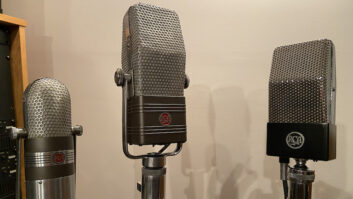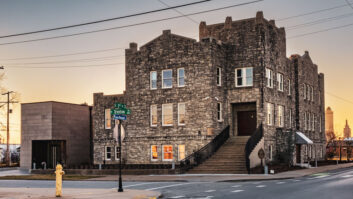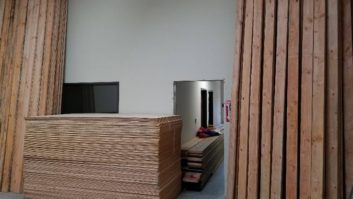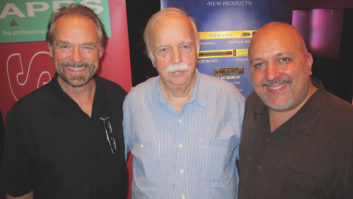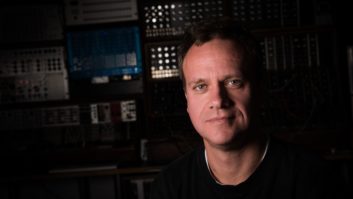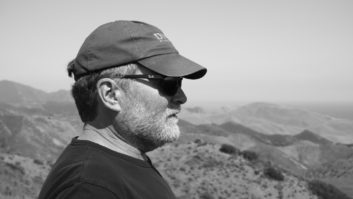I Will Miss You, Dad
So, here we are. A place I never thought we would be. You somewheregreater than I could ever imagine and I here, missing you. I never gotto say goodbye, but like you always said, “I am looking at the samesky.” There will not ever be one day or night that you won’t cross mymind. And when my children ask who you were, I will tell them the samething you told me about your dad: “He was the greatest man that I haveever met. He was the greatest father anyone could have ever had.” Howwill I explain just how wonderful you were, dad? Words could nevertell. Tonight I sit here asking, “Why did this accident have to happento my dad?” I have fought with God tonight. He took away my heart andmy ocean. Now where do I go? You had the strength of a lion and theheart of a child. There are so many places I never got to take you. Iwanted to show you the world. I will miss your daily calls and e-cards.I will miss spending time with you. Oh God, how I wish I would havespent more time with you. Like you said, “Everything happens for areason,” but this doesn’t feel like it. I wish you could have gottenthis before last night. Only if I could talk to you now. Please be withWeston. He needs you most. Goodnight, dad. I love you more than youcould ever imagine.
–Love, Little Ivy
My Friend
Denny Purcell was the most loving man I ever knew. His kind,reassuring presence brought comfort to all who knew him–and allwho knew him loved him. As a mastering engineer, he was exceptional,but as a friend, he was without peer. Denny’s smiling face at the topof Georgetown’s staircase signaled another happy ending for themany record producers who made the climb to the top. I considered himto be a part of my family, and when I saw his smiling face adorning thepages of a trade magazine, I was as proud as a blood brother. But whenDenny and I were alone, we didn’t listen to music, we usually talkedabout our families…about how the success we had achieved hadenriched their lives. He once said, “Norbert, if we work extra hard andalways do our best, we can take better care of our families.” My friendDenny Purcell worked extra hard, and his family, like the rest of us,benefited greatly. Denny’s presence in my life will be sorelymissed.
–Norbert Putnam
Simply Denny
He didn’t need a last name in this town. In Nashville, everyoneknew him as Denny. Sure, Denny Purcell was one of the world’sfinest mastering engineers and his expertise helped put the finishingrefinement on over 7,000 albums, hundreds of which went Gold andPlatinum: artists like Neil Young, Garth Brooks, Yo-Yo Ma, MartinaMcBride, Keith Richards, Trisha Yearwood, Phish, Chet Atkins, TomPetty, the Dixie Chicks, Faith Hill, Mark Knopfler, Dire Straits, DonnaSummer, George Strait, Kansas and Vince Gill.
It’s also true that Denny was at the vanguard of the finestdevelopments that audio would have to offer, and he was one of thebiggest champions of surround audio. High-end audio designers from allover the world clamored to have him audition their gear. But after yougot through those well-documented accomplishments, the real reason whyDenny Purcell made a difference was his richly dimensional and generoushumanity. There was no doubt that you were dealing with someone whocared about you and what he did.
Denny had a way of letting everyone know with his labor of love thatwhat was being listened to and experienced really mattered. Many peoplecame away from Georgetown with not only great-sounding recordings, butalso an enhanced sense of self and, more than likely, a new friend.
During his memorial service, where music was provided by John Prine,Nanci Griffith and his fave Nashville band the Del Beatles, personafter person lined up and shared deep and meaningful stories of howDenny affected their lives. The wake that night, which was hosted byStarstruck and BMI, was no different. Story after story rendered apicture showing how Denny had made a difference in the Nashville musiccommunity–and around the country.
Anyone who Denny enjoyed received regular invitations to go fishing.It took me a while to get around to telling him that I wasn’treally into catching fish, but when I did, he cracked, “If it was aboutthat, they would’ve called it ‘catching!'” Of course, he wasright.
Denny loved telling jokes–some really good ones and a lot ofreally bad ones. A visit with Denny would almost always begin withseveral of them, which he would tell with absolute relish. He wouldeven laugh at the jokes that were so bad that when he stopped, youwould be still standing there grinning and waiting for the punch line.In an industry where great “characters” are becoming harder to find,Denny was a classic character in the best sense. He could be souncool at times that he would be utterly the coolist. He owned hisspace on this planet, and when he walked into a room, you knew someonespecial was in your presence.
Those of us who had the good fortune to know Denny loved his goofy,prankster grin and line of bullshit, as well as his impressivelyanalytical mind that cut through that bullshit and provided claritylike few others could. We would be disarmed by his moments of nakedcandor and vulnerability, and inspired by some of that day’s quietreflections. We also smiled at his moments of swaggering arrogantbravado. When he was on his game, he walked the walk and talked thetalk. And even when he was a little off, he clearly enjoyed knowingthat his friends would smile and indulge him when he strutted. We lovedhis obsession for sharp clothes, nice polished shoes, fine cars thatinvited tinkering, good food and quality in all things. In fact,Denny’s whole thing was about nurturing a refined hunger toappreciate the highest good out there.
In his quest for the best, he would become frustrated by what hecalled “good enough.” Over the past year, Denny launched a personalcrusade to anyone who in the music industry who would that abottom-line climate of “good enough” was compromising audio and theartistic community, as well as the industry as a whole. One thing Iknow he hated was mediocrity.
Denny loved music passionately, especially the works of Neil Young,Bob Dylan, Duane Eddy, Chet Atkins, Mark Knopfler, John Prine, NanciGriffith, Joni Mitchell, Emmylou Harris and Van Morrison–allartists whose vision exuded the level of integrity and heart that Dennycherished. Even after mastering over 7,000 albums’ worth of music, atover 250 a year, he still had that fire to hear something new andbecome emotionally involved in it.
To watch Denny delve into the music at a mastering session was towitness his commitment to make every nuance matter “for the sake of thesong,” to borrow a song title of one of Denny’s favoritesongwriters, Townes Van Zandt.
In that spirit, every nook and cranny of Georgetown has always beena reflection of his love of great musical artistry and the people whomake it happen. He could have covered the walls with Gold and Platinumawards, but instead chose great guitars and pictures of people heloved, like the legendary Chet Atkins, whose picture was propped abovehis cigar humidor and near the last guitar he played.
In any other place, all these rarities would constitute a museum. AtGeorgetown, Denny just loved it when someone would play on one of thoseguitars. To him, the instruments and memorabilia were a heartfeltconveyance of an ongoing celebration of the creative musicalspirit.
You never knew who would show up at Georgetown and hang for a while.Often Georgetown felt like the front porch refuge of an old small-towndry goods store where jokes, philosophy, street gossip and music werefreely shared and Denny held court–even when he wasn’t there.I’m sure that will continue to be the case. That place will alwaysbe Dennyland.
The one memory I will probably cherish the most with Denny happenedless than two weeks before he passed away. It was while he wasbeginning mastering work on a surround collection of classic EmmylouHarris tracks produced by Brian Ahern.
During the auditioning of Harris’ beautifully evocative versionof “Too Far Gone,” all of the channels unexpectedly dropped out andthere was her voice, all by itself, coming out of the center channel.Instead of stopping the tape and seeing what had caused the problem,Denny went with the flow, and we sat there alone in the dark roomlistening to Emmy pour her heart out through that amazingly fine setup.I’m certain that no one will ever hear her like we did that night.It sounded like she was standing in front of us singing with suchintimacy and vulnerable emotion that it was spooky. After a few momentsof taking this all in, he and I simultaneously looked at eachother–touched by the whole magic of the moment–and we raisedour arms in the half-light and there were chill bumps covering them. Hesmiled, pointed to his arm and said, “These are real. We are hearingmagic,” and then we let her sing to us until the song finished. Later,we talked about how no amount of technology and Auto-Tuners canmanufacture something that pure and honest. As they say, it was in thegrooves.
A few days later at Norbert Putnam’s birthday party, Dennysidled up to me and said, “You know when all those channels dropped outduring ‘Too Far Gone’? Well, for the first few moments, I satthere trying to look like I knew what I was doing, but I didn’thave a clue what happened. But I’m so glad it happened, because itwas one of the most special moments I’ve had in a long time.”
Denny liked to send e-mails that were more like meditations than theusual shorthand communication. One morning, while I was logging on andwaking up with my first cup of coffee, I saw an e-mail that had beensent at 3 a.m. Within the body of the letter was the following:
“Art is art, without being perceived by anyone or anything. ART IS.As engineers, we each have the opportunity to perceive art in the formof recorded music and preserve it forever. This fact has always excitedme and still radiates through me. What a time we are blessed to livein! We get to come to work and play with art, and in a sense, neverreally have to grow up as some do. We must never take this opportunityfor granted. The recorded music that all of us take some part in is,after all–in some way or another–preserved forever. Forevermay be hard to fathom, but I said forever. I am fortunate in my job asa mastering engineer for the past 28 years, for I am allowed to spendone to three days one-on-one with some of the most interesting andinsightful people in the recorded art world; artists, producers andengineers. What a great gig this is!”
Denny always mentioned his love for his family. I can’t thinkof one visit where he didn’t beam about them. It was inspiring. Hewas so proud of each one, his wife Gail Monier Purcell, daughtersRissie Suzanne Purcell, Abby Jane Purcell, Sarah Beth Purcell, IvyPurcell Arnold and son Weston Walker Purcell.
His appreciation for his friends was also something to behold. Hecared deeply, listened long and cajoled you, and called your bluff ifhe spotted a line of bull. I considered him a friend.
God bless you, Denny.
–Rick Clark, Mix Nashville editor
Gone, But Never Forgotten
I met Denny Purcell in 1985 on my first trip to Nashville,troubleshooting a Neil Young video 1610 to laserdisc transfer. BecauseI was there, Neil asked me to stop by Georgetown and retrieve the tapesfor his Old Ways album, which Denny had mastered. Within fiveminutes, Denny had my flights rebooked, my hotel changed and my next 18hours scheduled. I’m sure he would have done more if I hadn’thad to be in New York the next day! Our relationship never changed. Ican’t think of one phone call or visit in the last 10 years thatdidn’t end with, “When are you bringing the family out to my lakehouse? The fridge is stocked, my Mercedes is yours and we willcatch some fish!” You couldn’t get within 100 miles of Nashvillewithout Denny making sure it was gonna be as good as it could. Fivethousand miles is actually more accurate.
Denny Purcell’s craft was mastering music. His art was takingevery situation that he faced and bringing out the best in it. He usedthis art in his work, his friendships and in his illness. While he hadan excellent “BS” detector, the “know-it-alls,” idiots and asses thatone inevitably encounters always seemed to be treated as a greaterchallenge. Backstabbers were his only exception. He was the consummatestoryteller, an articulate bullshiter and eloquent speaker of theheart.
We continued to work together on projects for Merle Haggard, WillieNelson and once again for Neil Young. Working on Neil’s archivesled me to Denny’s name on countless boxes as a recordist with GeneEichelberger and Elliot Mazer in the His Master’s Wheels remotetruck. A couple of years into the restoration and A/D transfers, thetruck became my new home, and Denny provided valuable insight into itshistory (whooooh!), as well as its electronic refurbishment. Artifactsof the remodel included track sheets, mic runs, an HVAC invoice madeout to Denny, as well as copious amount of abandoned drugparaphernalia. Hey, it was the ’70s! The side of the truck stillsays “His Master’s Wheels, owned by Elliot & Denny.” Its tiresare sinking into the forest floor as the rust fine tunes the paintjob.
The decor includes an “oops” from the infamous ’73 Roxy show aswell as a hat, cigar, lighter and cigar trimmer stolen one night fromDP during a long night of wine, food, single-barrel bourbon, Cubanmusic and cigars that Denny hosted for myself and others who were intown to record steam engines for Lionel Trains. Denny, of course, hadlined up the hotels, restaurants and even a couple of diesellocomotives for our trip! Did I forget to mention that we traded mostof our clothing in the restaurant that night as well? The next day,Denny had his wife Gail running all over half of Tennessee trying toreplace the coat I’d stolen from him with one my size. One day,after seeing Denny in three or four ads in Mix, I donned thecoat, hat, cigar and lighter and had my picture taken and made my ownad for a new industry group called “BEDS”, aka “Buy Everything DennySEZ.” He roared.
On one trip out here, Denny and his son Weston managed to show upthe same day Elliot Mazer dropped in from New York. Leave it to Denny!On another, he dragged a bunch of us to all his old ’70s haunts,including his former home in Ken Kesey’s house from the MerryPrankster days. Mr. Fine Tune.
He infected me with the drive to constantly better the situation, beit audio or attitude. He taught me to listen for depth and clarity, aswell as tonality. Mostly, Denny taught me to “listen with your ears,but hear with your heart.” Hardly gone, never forgotten.
–John Nowland
Re-Dedicated
Denny put more passion into his work than most anybody I have everknown did. Doing it great was Denny’s goal. He believed that peopleenjoyed music more when it sounded better. And he knew what “better”was. He had phenomenal ears, he worked until it was done and he made uslaugh all of the time. Neil Young, and the many artists who I workedwith, trusted Denny. When Neil asked me to do a DVD-A version ofHarvest, I called Denny who helped me and inspired metremendously. When we were finished, we sent the tapes to Denny, whoturned them into the DVD-A that will come out this September.
The sad thing is that Denny never got to see the thing in thestores. Today is August 22, maybe three weeks too soon. We are tryingto see if it is not too late to put a dedication for him on theDVD.
Denny and I worked and played together since the early ’70s. Heworked at Quadraphonic Sound Studios in Nashville, and then in HisMaster’s Wheels, our remote truck and studio.
He will be sorely missed by the many people who he touched.
–Elliot Mazer, New York
The Young Denny
Denny was always striving to learn, to be better at whatever he wasdoing. I remember when Denny first came to me, teaching him how to wrapmic cables–the under-and-over method. Then, when we both went onthe road with His Masters Wheels, I being in charge of the trucktechnically and Denny being the stage setup engineer. When working theNeil Young/Linda Ronstadt 80-day tour, he had to set up 30 mics everynight, usually in a different venue each time, some of which were verychallenging, relative to how the wires had to be run from the truck tothe stage with no buzz from any microphone. He always pulled itoff.
One day, when Neil gave us a couple of days off while in NewOrleans, I was walking down Beale Street, staring at the hookers, whenI ran into a street light and about knocked myself unconscious. I wentback to the hotel to recuperate; Denny knocked on the door andpresented me with a young woman whom we’d met the night before to helpease my pain and speed my recovery; Denny was always trying to help hisbuddies any way he could.
We received a call to work Don Kirshner’s Rock Concert in New YorkCity at the Pallace Theater–up till that time, Denny and I alwayshad drivers who usually parked the truck in the right place, but notalways. We decided to get our CDLs so we could move the truck to theright location when needed. We practiced and passed the test, thenheaded to New York City, Times Square, through Lancaster, Pa (where myparents lived). We picked up some veggies and other food for the tripto New York City–the cauliflower was left in the back of the truckfor a few days. We did the concerts, recording Billy Joel’s TVpremiere.
That evening ran late because of a union problem; I stayed to do amix of The Raspberries, and I asked Denny, “Who the *&!$ are TheRaspberries?” He replied, “They only have a million-selling record outthere, Gene.” (We’ve had many laughs about that over the years.) SoDenny and Gail headed back to the hotel up 7th Avenue; about 10 minutesafter they left, there was a banging on the truck door. They werescared back by the whores and pimps jumping behind dumpsters every timethe cops cruised by.
The next day, we started to drive back to Tennessee, but the brakeswent out. We went to Hertz and got the lines fixed, then proceeded toeat the leftover cauliflower as we headed out of town. Soon, the truckwas being powered by other than diesel fumes. Gail crawled into thesleeper to flee our smell.
Another highlight in Denny’s remote truck recording experience was aCBS event “A Week to Remember” at the Ammison Theater in L.A., where werecorded 25 different acts in five days. Denny talked about doingcountry, jazz, rock ’n’ roll, pop and the blues all in oneweek while reminiscing about his trucking days.
–Gene Eichelberger
My Surround Man
My introduction to Denny was through Chuck Ainlay. Chuck could onlysay the nicest things about Denny. Then when Tony Brown came down tothe Tracking Room, we talked about mastering Vince Gill’s 5.1 projectthat would be the first one out of Nashville. Tony and Chuck kepttalking about this great mastering guy, “Denny.” They couldn’t havebeen more correct. Denny’s approach and integrity really showed me justwhat a master he was.
After several projects with Denny, I realized what a good friend hebecame. He cared so much about family–his children were his life,and he was so proud of them. In April 2001, I had to come out toNashville for some business. Denny said, “Rory, why don’t you bringyour daughter and I’ll take you fishing at Jim Henry’s.” So, I took mydaughter with me as she was so excited to be with daddy. Denny wastelling my daughter the secrets of life–he was so sincere andnothing but passion. He taught Elise how to bait her line, cast andcatch. Well, Denny and I caught about 40 to 50 fish each, while Elisecaught 104. She was glowing like the sun, and Denny just smiled as ifhe gave her one of the greatest gifts she could have had, and itwas!!!!!!!!
We would always talk about 5.1 tricks, and how he sees the futureand how to educate the public, but then it would always turn to family,love, guitars. One night in New York, Denny invited a few of us to gosee Les Paul perform. Denny introduced us, and I was in heaven. Duringthe show, Les invited Denny up onstage to have some banter betweenthem. Denny handed me his camera and asked me to take as many shots asI could. Les also signed his pick guard from his Gold Top (Les PaulDeluxe Guitar), I believe. Denny was like a child holding his favoritebaseball player’s autograph.
Denny would write poem-like notes to me, which seemed to ground mein the everyday stress, and then I would think, “How wonderful to havea friend like Denny who cares from the heart.” He was so rare; he wasthoughtful, kind, loving, giving, proud, grounded and he loved hisfamily. Sometimes he would get stressed, but in the economy of the pastfew years, who wouldn’t. I will always treasure his integrity in thesurround world for setting the standards of which we all listen to now.He was surrounded by so many wonderful friends.
My last visit with Denny was in late June during the NAMM and NARASmeetings. The next day, he picked me up at my hotel and drove us toBrian Ahern’s. Denny was so proud of Brian’s work on this new 5.1Emmylou Harris project. Brian was such a gentleman, just like ChuckAinlay. Denny had such dear warm people working with him always. Brianplayed his new mixes for me and I was so blown away. Denny sat in backof me, I turned around and saw how proud he was of Brian. I loved thatabout Denny–it was never about him!!! On the way back to thehotel, we stopped at an Italian place that he said served the best icecream in Nashville. It was closed, so we took advantage of our time totalk about our personal state of affairs. He told me how he loved hisdaughters and son, how he was sorry about some of the things he had putthem through. It hurt him, but he was honest about all of it and wishedhe could have turned the clock around. He just smiled when I discussedmy children, as he loved them too.
Denny was much more than a mastering engineer, he was one of thegreatest human beings I’ve ever known. Here are a couple of samples ofDenny’s words:
Dear Rory, I trust this finds you, your son and daughter and Mothero.k. My health, you asked: I saw my transplant doctor, Wright Pinsonjust three weeks ago. He teaches others across the Globe hismethodology. I asked him, after six months of waiting, “Where are we,NOW?” He said, “Denny, you’re my friend. You’re the healthiest patientI’ve ever had, and the worst thing I could do for you right now is giveyou another liver. You’re at the top of the list, if you need one,we’ll put one in, but as long as you stay as healthy as a 30-year-oldas you are right now, we’re going to leave you alone. Come back and seeme in six months, but come by or call me if you have ANY problems.” Sothat, my friend, Rory, is the Good News! So when are you comingfishing? Jim Henry caught a 62lb. catfish last week using a whole, livebluegill as bait. thank you. XXOO, denny
Dear Rory, Here is all that matters: I LOVE YOU! My health is betterthan it’s been in 2 years. Dr. Wright Pinson (The Top Liver TransplantDR. in the WORLD) says, “Denny, you don’t look like a patient.” I’monly taking minimal medicines. Rory, I’m rockin’. My daughter, littleIvy, just graduated from Belmont University at 11:04 this morning witha BBA in Music with a focus on Marketing. She’s only 21 and finished in4 years! Thank you so very much for your kind words; I needed that,especially from YOU. Please remember I’m here, but there with you. Becareful, and GODSPEED. Please come fishing! XXOO, denny
Okay, this is getting hard, the tears are not stopping now. Pleaseuse whatever you want from this. Thank you so much for allowing me toshare my love for Denny.
–Warmest Regards, Rory S. Kaplan
Only Denny for Me
Denny had a trait all of us in the music business could learn from.The way he mastered an album…you can’t teach that. This is what hewas born to do, and I’m very proud to say that in my career, no one hasever mastered an album of mine but Denny. I’m extremely lucky.
–Garth Brooks
Gentle and Kind
Even in a business filled with gentle, kind, creative people, DennyPurcell stood out as one of the sweetest of all. He had the particulargift of letting you know he loved you and that you were special to himand important in his work and his life. Denny shared his workplace, hisfriends and his family with all of us who knew him. Many of us got toknow his entire family and watch his five children he was so proud ofgrow up. His business, Georgetown Masters, was a meeting place for allkinds of people. Often dropping in to see Denny (at his standinginvitation), I would meet many legendary artists, producers, recordcompany executives and, of course, engineers. Some were old friends,and some I knew only by reputation. Whether working or visiting, a fewhours spent at Georgetown was always an uplifting “Denny experience,”and my life has been much richer these past many years because of him.I love Denny and will miss him tremendously for the rest of mylife.
–Duane Eddy
Farewell, My Brother
Denny was without a doubt the most passionate person I’ve ever met.He loved songs and he treated everybody’s songs as if they were hisown! He had a way of making every client feel like their project wasthe most important project ever–but it wasn’t an act. When heworked on your project, he truly did feel it was the most important ofall time.
But that was Denny’s attitude toward life in general–that everyperson and every thing was intriguing and worth understanding. Two ofDenny’s best friends were a multi-Platinum music legend and a homeless,jobless person who nobody else would even take the time to lookstraight in the eye. He could see through the superficial exterior of aperson better than anybody else, and that part of a person meantnothing to him. That explains why a person with so many achievements inlife chose to line the walls of his studio not with awards, but withmusical instruments.
He loved learning, especially when he learned by doing. He pridedhimself on being just a little bit of a hillbilly, because when caughtin a hole, he felt hillbillies were best equipped to dig themselvesout. This was because hillbillies could figure out how to do everythingfor themselves, in a McGyver sort of way. He used to say, “Threehillbillies sitting on a porch whittling wood could figure out more inan afternoon than a board room full of top executives could figure outin a week.”
Denny and I worked many 16-20 hour days together and did so sevendays a week. On the particularly long days when I would leave thestudio at 3 or 4 in the morning and come back a couple of hours later,he would always leave me a note where we were working. I found one hehad written last week. He wrote:
“Years from now, someone will listen to what we’ve done and know wewere here
They may not know or care who we were
But they’ll hear our music speaking for us.
And just maybe they’ll understand something
That’s the way it’s supposed to be.
The players come and go, but the music lives on.
Eternity will take care of the rest.”
At the end of a session, especially when an artist would thank Dennyfor his genius, Denny would pull them aside and say, “Thankyou…for the songs!” On behalf of all the people who worked withDenny over the years, I would like to thank him one last time forgiving all of the songs the greatest impact and making them sound asgood as they could possibly sound. On behalf of Denny, I would like tosay one last time to the thousands of artists, producers and engineerswho had the opportunity to work with him, and to the millions ofunfortunate ones who never had the chance: THANK YOU FOR THESONGS!!!!
Denny used to always say we were brothers in arms. I will not desertyou my brother in arms.
— Andrew Menelson, VP, mastering engineer, GeorgetownMasters
Always In the Present
It’s hard to think of Denny Purcell in the past tense. I am going tomiss walking in on his sessions, and him walking in on my meetings.Whatever challenges life threw him, he faced them with his head up anda major sense of humor. He has left an indelible mark on everyone whoselife he touched. He was a master of his craft and a master atappreciating every day. He taught me about life by allowing me to be apart of his. Thanks Denny.
–Al Bunetta
Only Denny Could Hear It
Denny heard things that no one else could hear. One day, I was atGeorgetown and happened to mention how much I enjoyed the new Dylanalbum, Love and Theft, and Denny’s eyes lit up. I said I’dlistened to one track in particular, a song called “Mississippi,” atleast 100 times. Denny beamed and asked, “Did you hear what they did at2:37, going into the second bridge?” I shook my head no. Dennyimmediately stopped what he was doing, cued up the song and played thesection for me twice. But I couldn’t discern anything different fromanywhere else on the track. Like a high school kid, Denny pointed out amove one of the guitarists made that was completely different from thetwo other bridge entrances, something very subtle and nuanced, yetdeliberate, powerful and very important to the feel of the song.Something only Denny could hear.
–Steve Fishell
Compassion and Understanding
I had the pleasure of knowing Denny for almost one-quarter of hislife. All else aside, what stands out to me about Denny Purcellprobably more than anything else was his sense of kindness towardpeople. He had an ability to approach people with one of the most kindand generous manners I have ever experienced. Soft spoken and anability to set a mutual tone of peace and acceptance with rarely ornever a negative word toward any fellow man. He had a desire to lookfor the good in people rather than the negative. In addition to what hespent the majority of his life pursuing, providing the musicalcommunity with records and discs, Denny Purcell felt it his duty andhonor to work toward the betterment of music reproduction throughaccurate and quality mastering techniques. And he did indeed in orderthat the musical community could express themselves to the best oftheir abilities. And it’s really only all about people and theenvironment in which we reside, isn’t it? I will miss him very much andI know many others will as well.
–Ric Loomis
My Competitor, My Respects
Nashville and the mastering profession has lost a wonderfulmastering engineer, Denny Purcell. Denny and I knew each other for thepast 20 years or so. Although we were competitors, we always had amutual respect for each other. Any time a client would bring up Denny’sname to me, I always had good things to say about him. He extended thesame courtesy to me. Never in the 20 or so years of our friendship didI ever hear of him saying anything negative toward me.
One afternoon, I ran in to Denny on the street in front ofMasterfonics. We began talking and Denny invited me to come see himanytime. As I recall, he said to me, “I know we are competitors but Irespect you for what you do, and I know you respect me for what I do,and we are still friends.” I considered Denny to be a friend, and Iknew I was welcome in his house just as he was welcome in mine.
Denny, his sense of humor and his extraordinary talent will begreatly missed.
God Bless Denny and his family
–Benny Quinn
The Popsicle Story
This is the story of how Denny Purcell came to Nashville to seek hisfame and fortune. January 1970, he brought his first wife and daughterto Nashville. He had a strong interest in the music business and wantedto be involved in the recording aspect, but had no plan as to how hecould make this a reality.
He went door to door down Music Row hoping to get in and just hangout. He met Gene Eichelberger at Quadrafonic Studios. Some days, hewould let him come in. Many days, there would be closed sessions and hewas turned away. He became very discouraged.
Summer was coming and Denny needed money for his family. A Popsicletruck came down the street every day. His little daughter Rissie wouldget very excited when she would hear it coming. Denny decided thiscould be fun so he signed on and became a Popsicle man. He was given aroute in Hendersonville, Tenn., where he sold one to Johnny Cash. Thiswas very exciting to him. Being the businessman that he was, he decidedhe could make more money if he bought his own truck. The Ice CreamCompany let him borrow a freezer box to set on the back of his oldpickup. Unfortunately, it was not electric, and by the end of the day,whatever product was left was usually melted. So what he didn’tgive away or consume was thrown out by the end of the day.
He realized this was a distraction from his original plan so he gaveup the Popsicle biz and became more active with his visits to Gene andthe studio. Before long, he was asked to go out for coffee orsandwiches for the clients. Then he was asked to borrow equipment fromother studios. One thing led to another; he had become accepted intothe recording industry.
It’s like a fairy tale where dreams can come true.
–Rissie Purcell, eldest daughter
